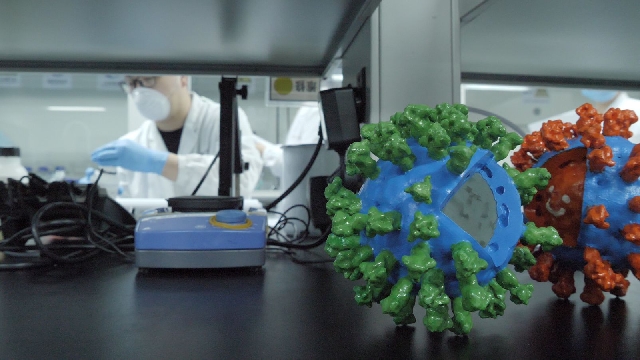Needle-free vaccine which targets all coronaviruses could start trials in autumn

A coronavirus vaccine developed by the University of Cambridge, which is delivered through a “single jet of air”, could enter clinical trials by autumn.
The proposed vaccine, named DIOS-CoVax2, would be administered through a patient’s skin, eliminating the use of needles and making it pain-free.
Development of this vaccine has involved looking at genetic sequences of all known coronaviruses, including those found among bats – the natural hosts of many relatives of human coronaviruses.
The research team have also used 3D computer modelling to analyse the structure of SARS-CoV-2, the virus causing COVID-19.
All types of coronavirus have a spherical structure with spike proteins, it’s these spikes that are used to invade cells in the body.One vaccine strategy focuses on blocking this attachment, however not all immune responses to the virus and spike proteins are beneficial, and these spikes have also mutated throughout the pandemic.
Antibodies at the wrong parts of spike proteins are thought to trigger hyper-inflammatory immune responses which results in life-threatening COVID-19, according to experts.
Cambridge have created libraries of computer-generated antigen structures which aim to train the immune system so key parts of the virus and system are targeted to produce a good anti-viral response.
These immune responses involve neutralising both antibodies that block the virus, and T-cells that remove virus-infected cells.
This “laser-specific” computer-generated approach is said to avoid any hyper-inflammatory responses being triggered.
Innovate UK, the government’s innovation agency, provided funding of £1.9m for the collaboration between Cambridge company DIOSynVax, the University of Cambridge, and the University of Southampton NHS Foundation Trust.
Talking about the vaccine, Professor Jonathan Heeney, head of the Laboratory of Viral Zoonotics at the University of Cambridge, and founder of DIOSynVax, said: “We’re looking for chinks in its armour, crucial pieces of the virus that we can use to construct the vaccine to direct the immune response in the right direction.
“Ultimately we aim to make a vaccine that will not only protect from SARS-CoV-2, but also other related coronaviruses that may spill over from animals to humans.
Dr Rebecca Kinsley, from the University of Cambridge, said: “Our approach – using synthetic DNA to deliver custom-designed, immune selected vaccine antigens – is revolutionary and is ideal for complex viruses such as coronavirus.
She added: “If successful, it will result in a vaccine that should be safe for widespread use and that can be manufactured and distributed at low cost.”
Trials will be carried out at the University of Southampton NHS Foundation Trust.








